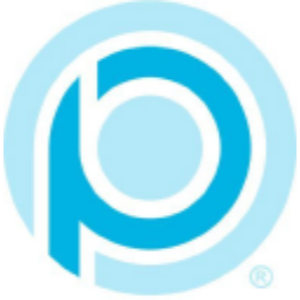Pulse Biosciences Announces Positive Clinical Data on Nano-Pulse Stimulation Procedure for Low-Risk Basal Cell Carcinoma Lesions
Pulse Biosciences (PLSE) has announced positive clinical results for its CellFX® System using Nano-Pulse Stimulation™ (NPS™) technology to treat low-risk basal cell carcinoma (BCC) lesions. An oral presentation at the 2022 American Society for Dermatologic Surgery Annual Meeting in Denver, from October 6-10, highlighted the technology's efficacy and favorable cosmetic outcomes. The study suggests NPS may provide a non-surgical and less scarring alternative to current treatment methods, potentially revolutionizing care for the 3.6 million U.S. patients affected by BCC annually.
- Positive clinical data from FDA approved study on NPS technology for BCC treatment.
- Demonstrated complete clearance of low-risk BCC lesions with minimal scarring.
- Potential to disrupt existing treatment methods like excisional surgery and Mohs surgery.
- None.
~ Oral video presentation at 2022
“It is exciting and encouraging to see complete clearance of basal cell carcinoma lesions using NPS technology,” said
Excisional surgery using electrodesiccation and curettage (ED&C) or Mohs micrographic surgery are the current standards of care for BCC lesions, both of which inevitably lead to scarring. Basal Cell Carcinoma is the most common form of skin cancer, accounting for
“Showcasing this exciting new clinical data to dermatology thought leaders at ASDS is a major step towards demonstrating the applicability of NPS technology beyond benign dermatologic conditions,” said
Oral Video Presentation:
Title: Nano-Pulse Stimulation (NPS) Technology for Treatment of Low-Risk Basal Cell Carcinoma (BCC) - Feasibility Study Using a Treat and Resect Design
Presented by: Dr.
Co-Authors:
Location: The video presentation will be available within the
About
To stay informed about the CellFX System, please visit CellFX.com and sign-up for updates.
Forward-Looking Statements
All statements in this press release that are not historical are forward-looking statements, including, among other things, statements relating to Pulse Biosciences’ expectations concerning customer adoption and future use of the CellFX System to address a range of dermatologic conditions such as superficial and nodular basal cell carcinoma (BCC), statements relating to the Company’s future product development in healthcare outside of dermatology, statements relating to the effectiveness of the Company’s NPS technology and the CellFX System to improve the quality of life for patients, and Pulse Biosciences’ expectations, whether stated or implied, regarding whether the Company’s NPS technology will become a disruptive treatment option for BCC and whether future clinical studies will show the CellFX System is safe and effective to treat BCC or any other medical condition, and other future events. These statements are not historical facts but rather are based on Pulse Biosciences’ current expectations, estimates, and projections regarding Pulse Biosciences’ business, operations and other similar or related factors. Words such as “may,” “will,” “could,” “would,” “should,” “anticipate,” “predict,” “potential,” “continue,” “expects,” “intends,” “plans,” “projects,” “believes,” “estimates,” and other similar or related expressions are used to identify these forward-looking statements, although not all forward-looking statements contain these words. You should not place undue reliance on forward-looking statements because they involve known and unknown risks, uncertainties, and assumptions that are difficult or impossible to predict and, in some cases, beyond Pulse Biosciences’ control. Actual results may differ materially from those in the forward-looking statements as a result of a number of factors, including those described in Pulse Biosciences’ filings with the
View source version on businesswire.com: https://www.businesswire.com/news/home/20221006005287/en/
Investors:
510.241.1077
IR@pulsebiosciences.com
or
415.937.5406
philip@gilmartinir.com
Source:
FAQ
What are the results of Pulse Biosciences' recent clinical study on BCC treatments?
When and where will the presentation of the BCC study take place?
What is the significance of NPS technology in treating BCC?
How common is basal cell carcinoma in the United States?







